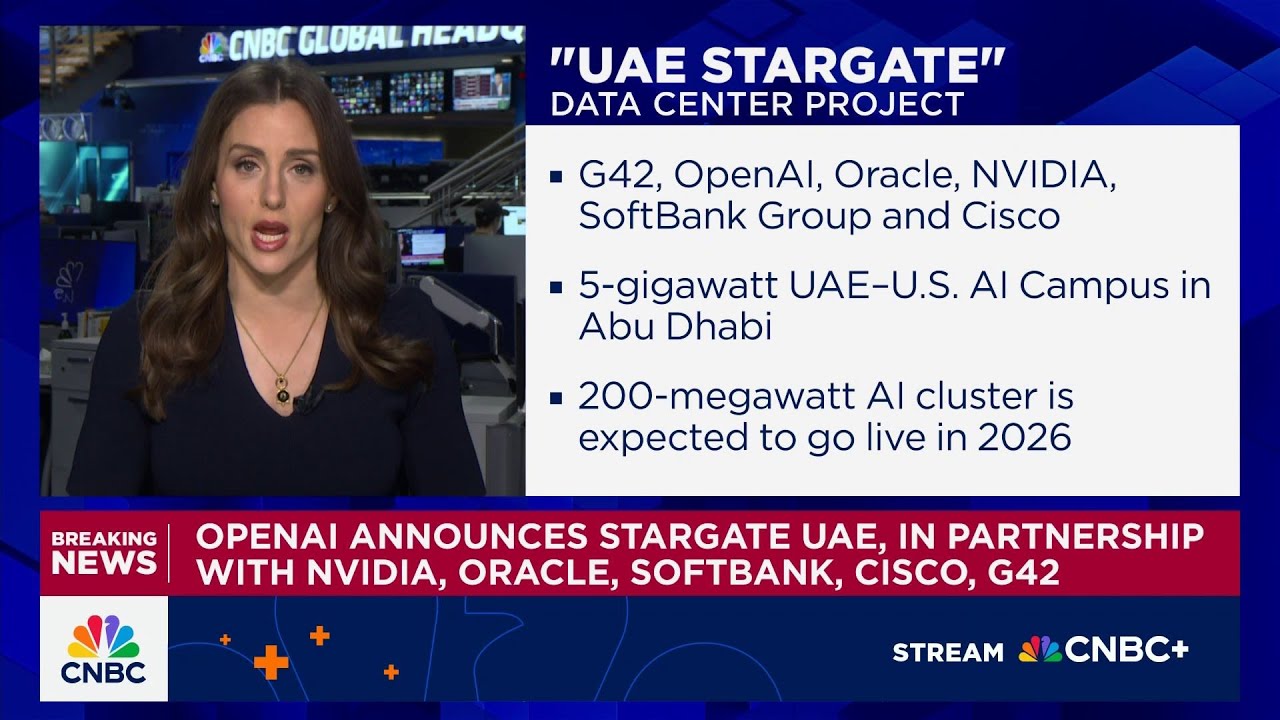OpenAI has announced the development of Stargate UAE, a large-scale AI infrastructure project in Abu Dhabi, in partnership with companies like Nvidia, Oracle, SoftBank, Cisco, and G42, aiming to create a 200MW AI campus by 2026. This initiative marks the UAE’s goal to become a major AI hub, with the first international deployment of OpenAI’s Stargate data center, and reflects shifting U.S. export policies and regional geopolitical dynamics.
OpenAI has announced the development of Stargate UAE, a major AI infrastructure project in partnership with several leading technology companies including Nvidia, Oracle, SoftBank, Cisco, and G42. This initiative involves creating a five-gigawatt AI computing campus in Abu Dhabi, marking the first international deployment of OpenAI’s Stargate data center, which is currently based in Texas, USA. The project aims to establish a significant AI hub in the Middle East, with the campus expected to have 200MW of operational capacity by 2026.
The new Stargate campus in Abu Dhabi will be built by Emirati firm G42, with operations managed by OpenAI and Oracle. This development signifies a strategic move to expand AI infrastructure into the Middle East, and it will enable the UAE to become the first country in the world to deploy OpenAI’s ChatGPT on a nationwide scale. Nvidia will supply its latest Grace Blackwell Systems to support the large-scale AI data centers, similar to recent deployments in Saudi Arabia, highlighting the region’s growing importance in global AI infrastructure.
This expansion into the Middle East also reflects a notable shift in U.S. policy regarding the export of advanced AI technology. Historically, companies like Nvidia and AMD required special U.S. licenses to export high-end technology to countries such as the UAE and Saudi Arabia due to concerns over potential technology transfer to China. The recent announcement suggests a loosening of these restrictions, indicating a possible change in Washington’s approach to technology exports to the region.
The involvement of G42, a company with close ties to China, adds complexity to this development. However, Emirati officials have claimed to be decoupling from China by divesting Chinese investments and removing Chinese-made equipment from other data centers in the country. This move is part of a broader effort to position the UAE as a more independent player in the global tech landscape, potentially easing concerns about technology transfer and geopolitical risks.
While the news has been breaking recently, analysts suggest that the market may not react strongly just yet, as many of these Middle Eastern deals are believed to have been largely priced in. The details regarding the specific number of chips and the full scope of the project remain somewhat unclear, but the overall announcement signals a significant step forward in the UAE’s ambitions to become a major hub for AI technology and infrastructure in the coming years.
